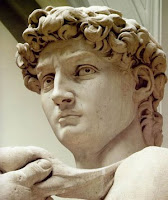In prior posts I have established (even if in a basic form) the Existence of God and the Possibility of knowing God. And prior to moving into the Nature of God and the relationship that exists between the Godhead i.e. the Father, Son, and Holy Spirit as I indicated last week, I felt it appropriate to first establish some principles which are shared by each, namely some of their attributes.
This will not be an in-depth exploration since literlly volumes of books have been written on this one subject alone. The goal here will be to offer enough of a foundation from which to operate.
Now we established earlier that God does not seek to argue His existence but He does state in many places the fact that He is ETERNAL.
The Psalmist declares His eternality as being “from everlasting to everlasting” or from “before the beginning and after the ending” (Ps 90:2). Isaiah declared that His name is Holy and that He lives forever (Isa 57:15). Jeremiah recognized Him as the “everlasting King” (Jer 10:10). Paul acknowledged His “His eternal power” (Rom 1:20) who is able to “establish you according to my gospel and the preaching of Jesus Christ” (Rom 16:26). As well as seeing Him as the “King eternal, immortal, invisible, the only God, [who will receive] honor and glory forever and ever” (1 Tim 1:17). And three times in the Revelation of John He states of Himself as being “the Alpha and Omega, who is and who was and who is to come, the Almighty… the first and the last, the beginning and the end” (Rev 1:8; 21:6; 22:13).
When we speak of the eternality of God we must understand that His very nature is (a) without beginning or end, free from all succession of time, and that contains within Himself the cause of time. This means we must also differentiate between being immortal and being eternal for man is immortal and his soul will live forever but man had a beginning. God on the other hand is without cause, He is self existent, and without beginning or end, He is outside the bounds of time.
Spurgeon commenting on His eternality use His love as an example:
Do you not know that God is an eternal, self-existent Being, that to say He loves now, is, in fact, to say He always did love, since with God there is no past, and can be no future? What we call past, present, and future, He wraps up in one eternal NOW. And if you say that He loves you now, you thereby say that He loved you yesterday, He loved you in the past eternity, and He will love you for ever; for now with God is past, present, and future. Those who talk of God’s beginning to love His people know not “what they say, nor whereof they affirm.” They might speak of man beginning to love; they might speak of angels beginning to love; but of God we never can, since He, without beginning, had a deathless love in His heart; He has an affection which has no source except in Himself, He could not begin, for He is without beginning of years, and without end of days. From everlasting to everlasting He is God; and from everlasting to everlasting His mercies extend to His people. (from his sermon "Christ's Prayer for Believers")
So how does the eternity of God affect our life? For all of us as human beings, life is full of surprises. We can never know with certainty what lies around each corner, but while we do not know what is around that corner, as believers in Christ, we do know Him who holds the future and for whom nothing is a surprise. Since nothing ever surprises God, no problem we will ever face catches Him by surprise for it is the Lord who sees the future as clearly as the present.





No comments:
Post a Comment